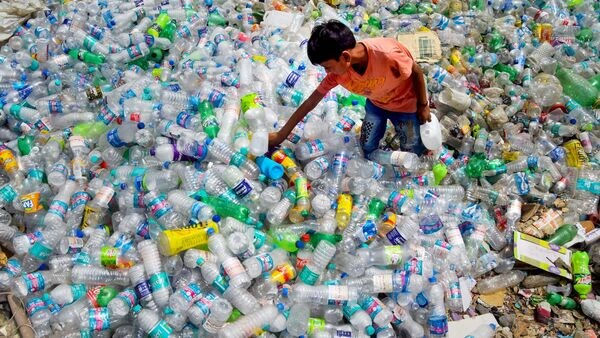Remove plastic waste stigma
- Rajendra Joshi

- Aug 18, 2025
- 2 min read
Ganeshotsav offers an opportunity to push for a plastic-free state

Mumbai: Maharashtra generated 4.8 lakh metric tonnes of plastic waste in 2024, the highest in the country. Of this, Mumbai alone contributed 1.2 lakh metric tonnes, official data shows.
To curb plastic use, the Union government had in July 2022 prohibited the manufacture, storage, import, distribution and use of single-use plastics below 120 microns thickness, under the amended Plastic Waste Management Rules, 2021. The law provides for penalties of up to Rs 1 lakh and imprisonment of up to five years.
Despite these measures, plastic waste continues to pile up across cities and villages. Experts say enforcement has remained weak, and unless citizens themselves stop using plastic bags and other banned items, the situation is unlikely to improve. With the upcoming Ganesh festival, environmental groups believe there is a chance to launch a wider public campaign against plastic use.
Health, environmental concerns
Plastic waste is now seen as one of the biggest challenges to human health and the environment in the 21st century. Being non-biodegradable, it blocks natural drainage systems and affects water resources. The chemicals used in plastic manufacturing are known to have harmful effects on health.
Studies in recent years have reported microplastic particles in human organs, while leachates from stored plastic waste have been linked to cancer risks. Environmentalists warn that if plastic continues to cover water bodies, Maharashtra could face a severe water shortage in the future.
Maharashtra’s share
Across India, 9.3 lakh metric tonnes of plastic waste was generated in 2024, with Maharashtra alone accounting for more than half. While laws exist to check pollution — whether water, air or noise — activists point out that implementation remains a major problem. Factories located along riverbanks, many said to be politically connected, often escape action.
The state has spent thousands of crores laying pipelines to bring drinking water from faraway reservoirs, even as local water sources remain polluted. Noise pollution too remains unchecked, with enforcement agencies accused of going soft due to political pressure.
Citizens’ role
Environmental experts say that governments alone cannot solve the problem. Citizens need to change their habits and refuse plastic bags and other single-use products.
If Ganesh mandals across the state take the lead in spreading awareness and ensuring plastic-free celebrations, campaigners believe Maharashtra can move towards becoming plastic-free. A breakthrough in the state, they argue, would significantly reduce India’s overall plastic.





Comments